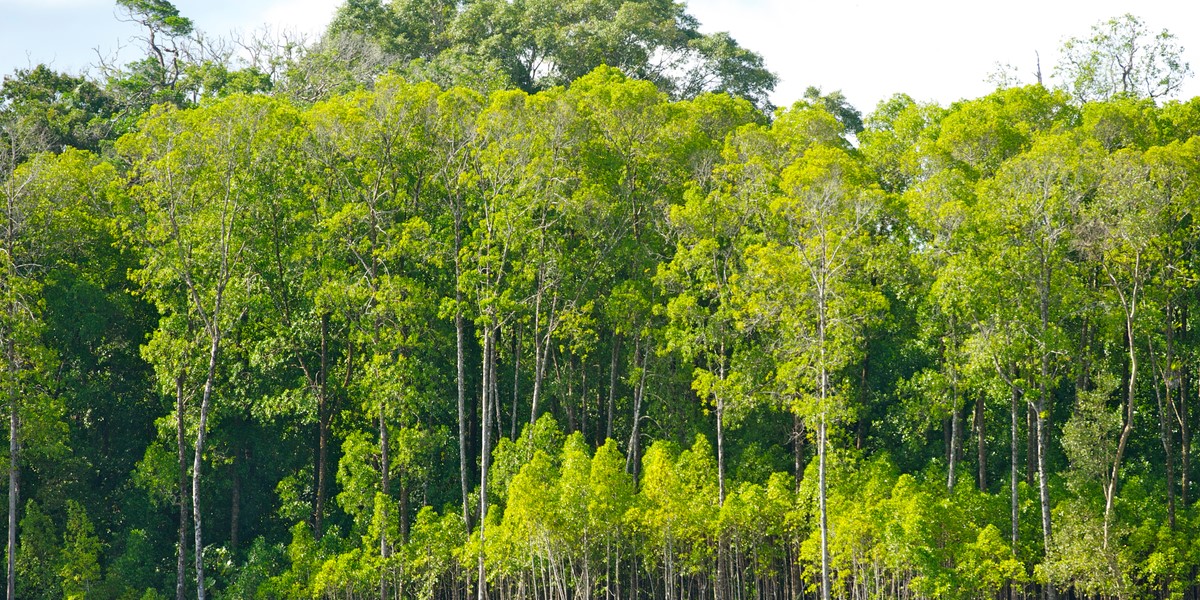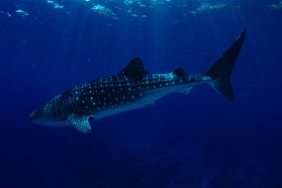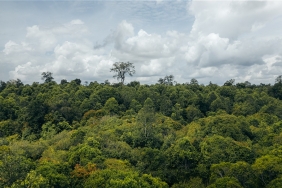PUBLIC SURVEY: LEGISLATIVE CANDIDATES SHOULD SERIOUSLY ADDRESS ENVIRONMENTAL PROBLEMS
Jakarta – Towards 2014 Election in Indonesia, WWF-Indonesia and LP3ES released a study that showed public (95,7 percent of survey respondents) want their future legislative candidates to seriously handle environmental degradation problems in Indonesia.
The study, released today (Feb 10th), entitled “Public Perception Survey on Environmental Issue and Preference of Political Party” was conducted in seven cities in Indonesia – namely Pekanbaru, Jakarta, Surabaya, Makassar, Samarinda, Kupang and Sorong – to asses public awareness level on environmental issue, as well as public perception and preference related to the role of political parties on natural resources management in Indonesia.
Based on the survey result, the majority of respondent agreed that there’s a relation between natural disaster – on national or local scale – and overexploitation of natural resources (91%), as well as corruption on natural resources management (80,1%). According to respondents, types of environmental disasters that occured the most are flood (61%), and drought (13,6%). Respondent claim that deforestation, illegal logging and ground water overexploitation, were three factors that triggered flood and drought in their areas.
“The natural resources management policy is a serious issue that is often neglected on political agenda, which often lead to disaster and woes to the people,” said Nyoman Iswarayoga, WWF Indonesia's Director of Communication and Advocacy. “in addition, the natural resources management is often get tangled with corruption issues,” he added. “Therefore, the Legislative Election on April 2014 is an important momentum for Indonesian people to vote for candidates or political parties that not only concern about economy as parameter of development but also concern about environment and sustainability. Sustainable development must involve economic, social and environmental aspects,” he stated.
Kurniawan Zen, Executive Director of LP3ES, stated, “Natural resources management reform is an urgent matter. Sustainability should be a fundamental strategy to reduce natural disaster risks that suppress the national economic growth.” According to Zen, there are three keywords in natural resources management – in the context of national economy – i.e (1) prosperity of the people, (2) sustainability and (3) environmental insight. Zen also added, “Referring to those keywords, there’s a basic question in the survey regarding the benefits and damages felt by public due to natural resources management practices.”
The survey result showed that respondents considered the current natural resources management gave more disadvantage rather than benefit to public (73 percent of respondent). People considered that their losses due to environmental degradation were related with two things: corruption among natural resources managers and policy makers, and weak surveillance by the government. Those two things were also considered as factors that hampered the benefit of natural resources management for the people.
Related to public political view against political parties that linked with natural resources corruption, the study showed that 52,7% of respondents will not vote for parties who have been convicted with corruption, both individual or institutional; 37,1% of respondents will not vote for parties that suspected with natural resources corruption, although if it is only a rumor; and 10,1% of respondents will keep voting political parties who are suspected with natural resources corruption, because it is difficult to be proven.
Adrianof Chaniago, an Expert on Public Policy Analysis stated, “Environment is not considered as a big issue, but it is a big problem because it has huge impact on human's live. Therefore, this issue should be highligthed to get people and decision makers' attention. Public, particularly voters' awareness, on political issues should be strengthened. They also should know the impacts of their votes. People need to know about the disadvantages that resulted from bad policy or corruption practices on natural resources by political parties or candidates.”
Concerning the government agenda post 2014 Election, respondents gave their strong indications that eradication of corruption natural resources should become one of the top priorities.
Notes for Editors:
- Survey was conducted from October 1st 2013 until November 15th 2013, with 700 respondents as samples, (minimum age: 17 years old).
- Report in Bahasa Indonesia can be downloaded HERE
For more information, please kindly contact:
Nyoman Iswarayoga, Director of Communication & Advocacy, WWF-Indonesia
Email: niswarayoga@wwf.or.id, Hp: +62-811-1284-868+62-811-1284-868
Desmarita Murni, Public Relation Manager, WWF-Indonesia
Email: dmurni@wwf.or.id, Tel: +62-811793458
Call
Send SMS
Add to Skype
You'll need Skype CreditFree via Skype





